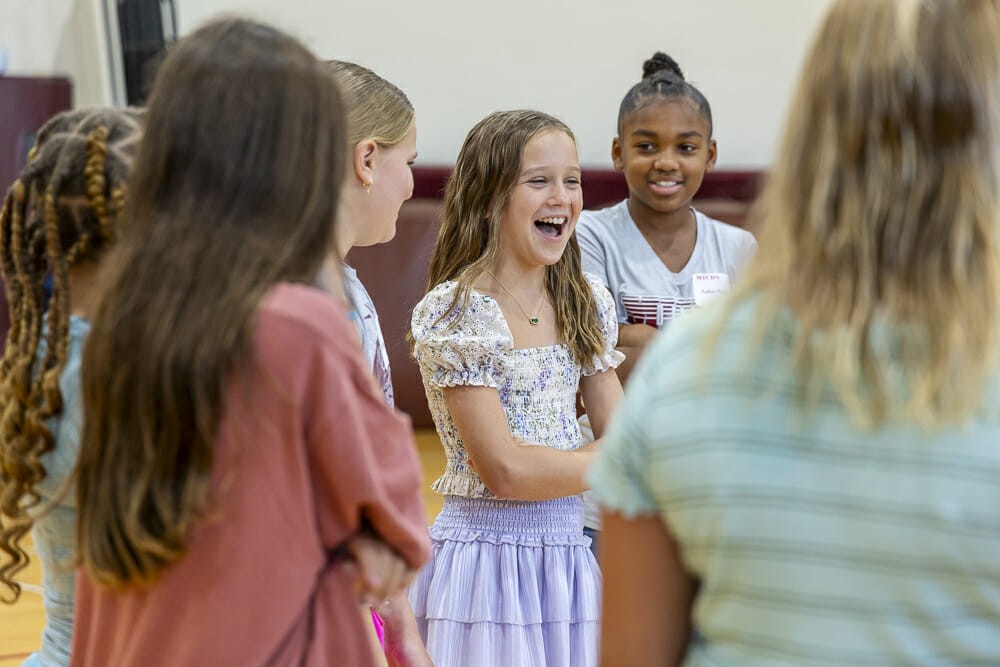A few minutes before 9:00 a.m. on Tuesday, Day 1—New Year’s Day!—it was my joy to walk into the Lower School with one of our delightful fourth graders. “Are you excited?” I asked her. “I’ve been practicing for my locker,” she said. Combination locks were new to her. “Now I know all the right ways to twist the knob.” Her mother smiled. “We were working at it for a while last night.”
In the Honeydew episode of season two of The Bear, a Hulu series about ambitious Chicago restaurateurs, one of the kitchen staff, Marcus Brooks, travels to Copenhagen for training and inspiration from an expert pastry chef named Luca. So much of what Marcus needs to learn is by way of repetition: the perfect tweezing of a minuscule garnish into a flourish of icing, or the optimal technique for scooping ice cream. A blue sign with white lettering hangs in Luca’s kitchen, declaring, “Every Second Counts.”
In 2004, the historian John Demos published a series of lectures titled Circles and Lines in which he contends that the American Revolution marked a transition from cyclical to linear ways of living. “In some deep way,” he says, “a sharper sense of self—a stronger articulation of self—accompanied the development of a linear mode of experience.” The modern American strives against the circular, repetitive aspects of lived experience that defined settler life in the colonies: the setting sun, the changing of the seasons, the rarity of annual occasions. Why shouldn’t 11:00 p.m. be as productive a time of day as 11:00 a.m., or tomatoes be available in January, or holiday music be ringing out on SiriusXM all year long?
“Every Second Counts” is not necessarily well suited to the linear way of living, though. Pressure, stress, impatience, and recklessness are its unfortunate corollaries. (Are we all better off because Facebook decided to “move fast and break things”?) The Bear, though, is more invested in circles than in lines, in steady improvement through repetition. It is still a matter of urgency—Marcus’s doughnuts and ice cream scoops, Sydney’s entree experiments, Carmy’s Al-Anon meetings—but no character seems to labor too heavily under the illusion of a circumstance-transforming, life-resetting “win” out on the horizon. They wake up, they work hard, they hope to find meaning in the day. Theirs is a repetitive yet nevertheless urgent project. “Every Second Counts.” They don’t want to miss a thing.
Ours, too, is a repetitive yet nevertheless urgent project. Yes, there will be goals to achieve as we undertake it—important ones—but more importantly still there will be habits to build, discipline to ingrain, character to form. At MICDS, we move in circles great and small. The world returns us to the middle of August, a school year commences, and within these sweeping arcs a child, bent over a table in her home and intent on learning, practices the use of a combination lock as she awaits her new beginning. And what will be your own child’s combination lock, your own child’s new beginning, this year? Every second counts.
Always reason, always compassion, always courage. Happy new year to you all! I wish you and your families a very joyful weekend.
Jay Rainey
Head of School
This week’s addition to the “Refrains for Rams” playlist: Spinning Away by Brian Eno and John Cale, from 1990. (“I have no idea exactly what I’ve drawn / Some kind of change, some kind of spinning away.”) Eno also created, with the German group Harmonia in 1976, an instrumental piece called Welcome that concludes the Honeydew episode of The Bear, playing as Marcus perfects one of the desserts he has learned in Copenhagen. A second Eno contribution to the show’s soundtrack, Lay My Love, features on the same album as Spinning Away. I have written about Eno before; and I should mention, too, that he collaborated frequently with Robert Fripp, the discipline implicit in whose definition of paying attention (“What we hear is the quality of our listening”) inspired me to identify this essential relational habit as a focus of our work together at MICDS this year. (Apple Music / Spotify)
